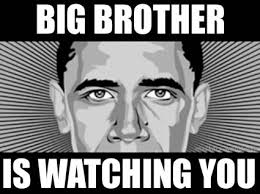The 1099 changes attached to the health care reform bill are another kettle of fish. These massively expand the requirements for filing the "1099-Misc" form, which companies use for recording payments to freelance workers and other individual service providers. Until now, payments to corporations have been exempt from 1099 rules, as have payments for the purchase of goods.Thomson Reuters has already scheduled seminars to help information reporting professionals deal with the changes which begin in 2012:
Starting in 2012, that changes. All business payments or purchases that exceed $600 in a calendar year will need to be accompanied by a 1099 filing. That means obtaining the taxpayer ID number of the individual or corporation you're making the payment to -- even if it's a giant retailer like Staples or Best Buy -- at the time of the transaction, or else facing IRS penalties.
In essence, the 1099-Misc is having its role changed from a form for tracking off-payroll employment to one that must accompany virtually any sizeable business transaction.
"Just with business travel it would include hotels, rental cars," Henschke says. "Phone service: 1099. Computer service: 1099. Whoever does your postage meter: 1099. You do a little advertising, Yellow Pages: 1099. Your landlord: 1099. You might as well just keep them in your pocket and hand them out as you go around every day."
Now that health care reform has been signed into law and corporate exceptions have ended, Form 1099-MISC reporting will become even more of a burden to businesses. “With these changes, it’s more critical than ever that information reporting professionals are well versed in the multiple facets of Form 1099-MISC to reduce risk of audits and penalties,” said Jon Buschman, vice president of ONESOURCE 1099 at Thomson Reuters. “To help information reporting professionals understand and prepare for these changes, we’re excited to offer a timely and informative seminar, Changes and Expansion of Form 1099-MISC Reporting.”Just what small businesses need in the worst economic environment since the depression. A requirement that they track and issue millions of new 1099-MISC forms. Another unfunded mandate for main street.
In case you're wondering why this isn't being widely reported (aside from the usual "cover for Obama at all costs" mission of the MSM), here's the reason. It's almost impossible to find. Just as you won't find the words "Fannie Mae" or "Freddie Mac" in the newly passsed Senate financial reform bill, neither will you find the term "1099" in the health care bill. But I did find the relevant passage on page 1,961 of the Senate bill in Section 9006:
(b) PAYMENTS FOR PROPERTY AND OTHER GROSSGot that?
9 PROCEEDS.—Subsection (a) of section 6041 of the Internal
10 Revenue Code of 1986 is amended—
11 (1) by inserting ‘‘amounts in consideration for
12 property,’’ after ‘‘wages,’’,
13 (2) by inserting ‘‘gross proceeds,’’ after ‘‘emolu-
14 ments, or other’’, and
15 (3) by inserting ‘‘gross proceeds,’’ after ‘‘setting
16 forth the amount of such’’.
17 (c) EFFECTIVE DATE.—The amendments made by this
18 section shall apply to payments made after December 31,
19 2011.
The ostensible goal of these new, sweeping reporting mandates is to catch income that is going unreported to the IRS. In reality it gives the government an even bigger spyglass to snoop into the detailed workings of private business. The government will be able to track virtually everything a business purchases, how much and from whom (General Motors comes to mind).
What could possibly go wrong?





No comments:
Post a Comment